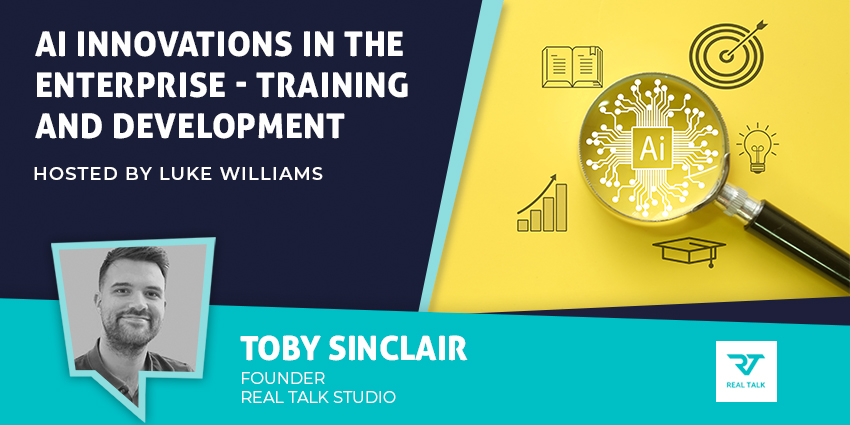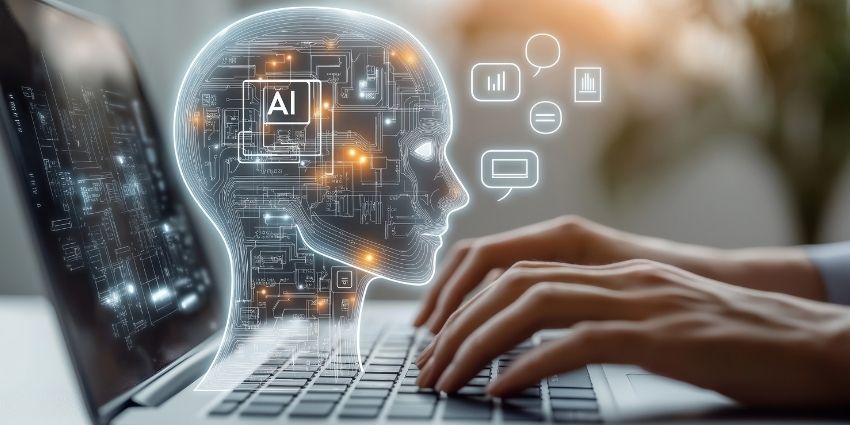As businesses race to implement artificial intelligence solutions, many are turning to AI agents – autonomous systems that can handle complex tasks with minimal human intervention.
One CEO, whose business is built on agentic AI technology, believes it could transform industries while enhancing – rather than replacing – human workers.
From Hotels to AI Innovation
After 12 years working in hotel operations, visiting over 600 properties across the UK, Inntelo AI CEO Asif Alidina spotted a persistent problem: communication bottlenecks were hampering both guest experience and staff efficiency.
His company uses AI agents to streamline hotel operations – and he believes this technology could transform how businesses operate across sectors.
AI is at a level now where it can communicate with us as humans in our own language rather than us pushing buttons, clicking mice, or downloading apps. I think that shouldn’t be understated – it’s a game-changer.
Inntelo AI’s solution allows guests to communicate with an AI agent via WhatsApp or phone call, without downloading an app. The AI handles routine queries and transforms conversations into clear tasks for staff.

Inntelo AI’s Whatsapp interface. Source: Inntelo AI
Defining ‘Agentic AI’
While definitions vary across the industry, Alidina explains that agentic AI refers to autonomous systems that can perform tasks, reason, and learn over time. However, he notes that most current implementations, including his own, operate below full autonomy.
The key distinction from regular chatbots is that AI agents must use tools and perform actual tasks rather than just engage in conversation.
What we’re talking about as the ideal is an autonomous role where the technology can reason, action tasks, learn from those tasks and improve over time. That’s the pinnacle of really what we’re talking about when we’re talking about AI agents.
In practice, today’s AI agents primarily handle structured tasks like scheduling meetings, routing customer service requests, and processing routine documents. They excel at organising information, managing communications, and executing pre-defined workflows.
However, the technology is evolving rapidly toward more sophisticated applications.
Future AI agents could manage complex project workflows, proactively identify and resolve operational inefficiencies, and even collaborate with each other to solve multifaceted business problems.
This evolution is already happening across different sectors. While Inntelo AI focuses on hospitality, companies like Answering Machine demonstrate the technology’s versatility in other areas. Their AI receptionist independently manages customer calls for small businesses in the home services sector, transforming missed opportunities into captured leads.
Answering Machine’s CEO Jake Jolis noted:
When an agentic AI can handle routine tasks independently, it frees up humans to focus on complex problem-solving and relationship building.
Finding the Balance
For businesses implementing AI in customer-facing roles, Alidina emphasises the importance of careful oversight. At Inntelo AI, they mapped four categories of customer interactions in hotels to determine where AI or human touch was most appropriate. For instance, a complaint requires a human touch, but asking where the nearest pubs are and which are most highly recommended can be answered by an AI agent fairly simply.
The key, according to Alidina, is understanding that AI shouldn’t replace human interaction entirely but rather enhance it by handling routine tasks that can distract from meaningful customer engagement. “Most of the time when I walk into a hotel, it’s hard to even get eye contact from somebody up front, their head buried in paper,” he notes. “Now they can actually talk to people, and they’re free of all that admin.
As the technology evolves, we will see AI agents take on more and more complex tasks, but there will always be human oversight required in many areas. As AI agents take on more of the load, it should see human staff freed up to focus on the more ‘human’ elements of their jobs: being more innovative, delivering customer-facing services etc.
The Future of Business AI
Instead of replacing jobs, Alidina believes AI will augment existing roles, pointing to training and development as an example of a promising area:
Rather than having lots of Powerpoint presentations and some dusty manual that you’re asked to read over in your spare time… this AI Buddy, alongside your real-life colleague, are really the two people that are going to help train you and bring you into this new job.
More broadly, the landscape of AI implementation won’t just be confined to which vendor can produce the most powerful AI model.
As the abilities of AI engines improve and reach a point of ‘diminishing returns’, geopolitical considerations will increasingly influence which AI models are adopted in different regions, with national security concerns and data sovereignty laws playing a crucial role. This is driving many technology providers to develop model-agnostic solutions that can adapt to different regional requirements.
Additionally, as the core capabilities of AI models become increasingly similar, competitive advantage is likely to shift toward specialised applications and industry expertise. While major tech companies offer broad AI solutions, smaller providers who deeply understand specific industries or business functions may deliver more value through tailored solutions. Their intimate knowledge of sector-specific challenges and regulatory requirements could outweigh the raw processing power of larger, generalist platforms.
For businesses looking to implement agentic AI, success lies in carefully analysing where automation can adds value in their industry or sector vertical, while maintaining appropriate human oversight.
As these technologies continue to evolve, the focus should remain on enhancing rather than replacing human capabilities, creating more efficient and effective workplaces.








